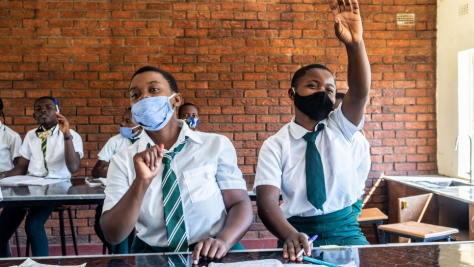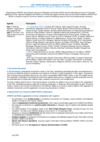UNHCR concerned over ending of rescue operation in the Mediterranean
This is a summary of what was said by UNHCR spokesperson William Spindler – to whom quoted text may be attributed – at today's press briefing at the Palais des Nations in Geneva.
UNHCR is concerned over the announcement of the ending this month of the Italian operation Mare Nostrum without a similar European search and rescue operation to replace it. This will undoubtedly increase the risk for those trying to find safety in Europe, and could lead to more refugees and migrants perishing at sea. It is estimated that 3343 people have lost their lives this year while making such journeys, 2755 of them since the start of July.
UNHCR has welcomed Mare Nostrum, which has contributed to the rescue of around 150,000 refuges and migrants since it began a year ago as a response to two tragedies off the coast of Lampedusa, where over 600 refugees and migrants died. Today, UNHCR reiterates its call for Europe to commit more resources to rescue at sea in the Mediterranean.
It is critical that the long-established tradition of rescue at sea is upheld by all. UNHCR also recognizes the efforts made by many commercial vessels - this year alone they have contributed to the rescue of about 37,000 people. To the extent possible, such rescue must ensure minimal financial impact on the shipping industry. Predictability on places for the disembarkation in safety of those rescued is also required.
In addition, Europe needs to step up efforts to provide credible legal alternatives to dangerous voyages to protect people from the risks of traveling with smugglers. The collective response needs to maintain a strong capacity to rescue people at sea and increase safer ways for refugees to find safety in Europe, including enhanced resettlement, other forms of humanitarian admission and private sponsorship schemes. UNHCR is also calling on European governments to do more to facilitate family reunification and use programmes such as student or employment visas to benefit refugees.
The level of desperation among many of those involved, fleeing war, persecution and violence, including from Syria require our concerted efforts to respond. This trend began in June and July last year, before Mare Nostrum was established, and has continued in 2014. In addition, an increased number of women, children, including many unaccompanied, and elderly people are taking to dangerous sea routes. They face greater risks, are more vulnerable to abuse and have specific needs that require assistance after they are rescued.
These challenges cannot be addressed by a few states alone; a joint European response is needed, based on collaboration among states and EU support. These efforts also need to ensure additional initial reception facilities, adequate reception conditions, assistance in processing as well as identifying solutions for those in need of international protection
For more information on this topic, please contact:
- In Rome, In Rome, Carlotta Sami on mobile +39 335 679 4746
- In Rome, Federico Fossi on mobile +31 349 0843461
- In Geneva, William Spindler on mobile +41 79 217 3011
Related news and stories
First UNITY Cup shows the power of football to connect refugees and hosts
Scholarships in Italy allow refugees to dream again
Relief for asylum seekers offered a new life outside Libya
Evacuation flights from Libya to Italy bring hope for vulnerable asylum seekers
UNHCR and Council of Europe discuss statelessness, urge States to uphold the right to a nationality in Europe
UNHCR warns of mounting refugee and migrant deaths in the Central Mediterranean
-

Critical gaps in refugee education: two thirds of refugee youth might never get to secondary school
7 Sep 2021 -

UNHCR Policy Brief - Uganda Employment
7 Sep 2021 Using socioeconomic evidence to promote solutions for refugees in Uganda. -

Regional Consultation on The EU's New pact for Migration and Asylum
7 Sep 2021 Organised by UNHCR, the European Council on Refugees and Exiles (ECRE) and the International Council of Voluntary Agencies (ICVA), regional Dialogues with NGOs aim at ensuring regular and two-way communication between UNHCR and NGOs in Europe on topics of common interest, as well as identifying areas for jointand complementary advocacy. -

UNHCR Education Report 2021: 'Staying the course' - The challenges facing refugee education
7 Sep 2021 The UNHCR Education Report 2021 focuses in particular on secondary education – the crucial yet critically under-resourced stage for refugees towards greater independence and improved prospects in life. -

We decide how to treat refugees - it's dehumanizing to deprive them of an education
7 Sep 2021 For the launch of the UNHCR 2021 Education Report, US author and vlogger John Green says learning opportunities for refugee children are utterly inadequate and the world must acknowledge their right to an education. -

What they took with them
6 Sep 2021 -

Refugee Paralympians leave legacy of hope as Tokyo Games conclude
5 Sep 2021 After competing with pride and receiving an outpouring of support in Japan and beyond, the Refugee Paralympic Team showed the power of inclusion for displaced people with disabilities. -

2021 Regional NGO Consultations in the Americas - Concept note on localization (Spanish)
3 Sep 2021 -

Multi-Religious Council of Leaders
3 Sep 2021
